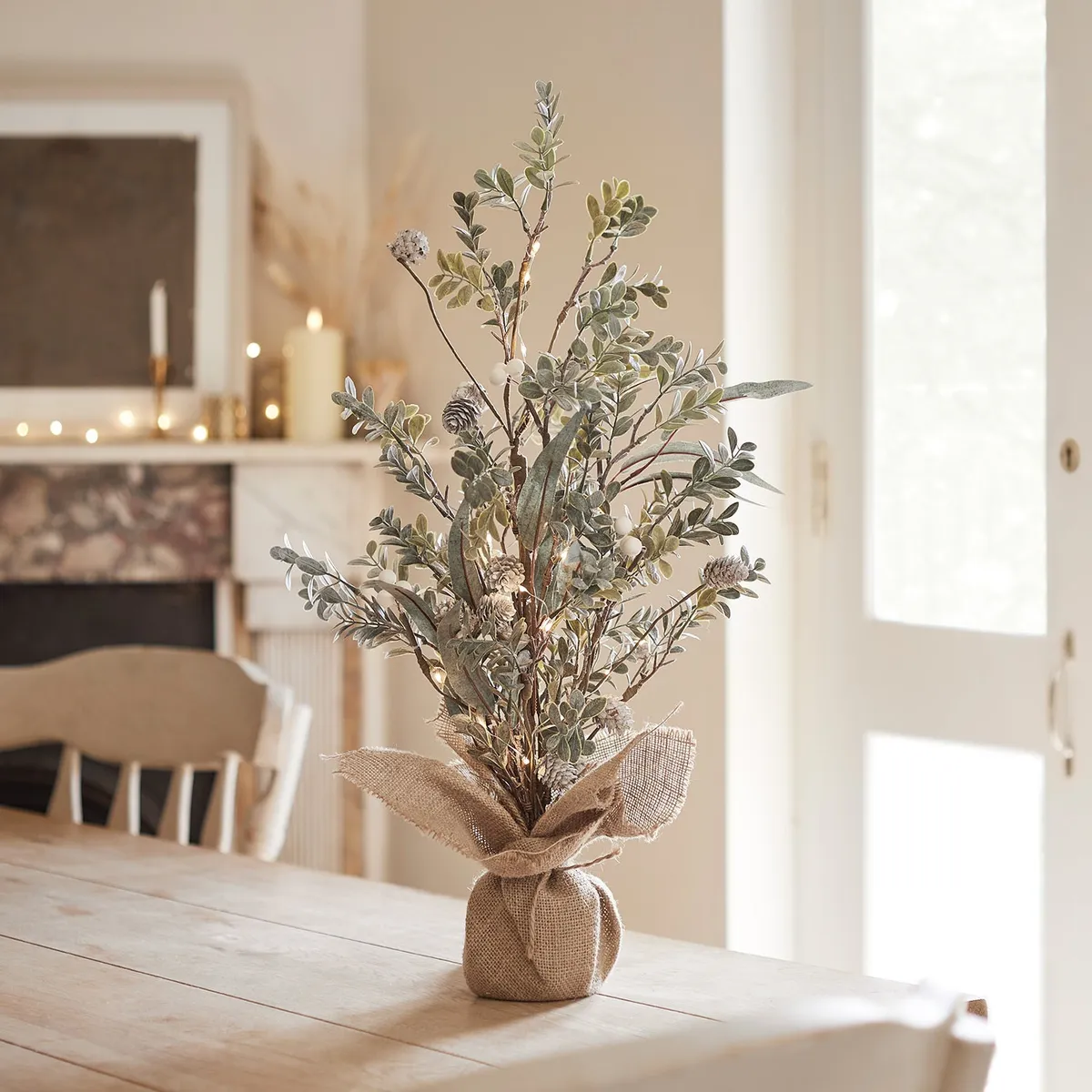The winter can be a tough time for wildlife, finding food and shelter - but if you've opted for a real Christmas tree this year, you could help!
Sean McMenemy, garden wildlife expert and director of Ark Wildlife, explains how you can repurpose and recycle your Christmas trees once the festivities have stopped to help garden wildlife thrive - whatever the weather throws at them.

How to recycle your Christmas tree to support wildlife
1. Use the Christmas tree as a multi-perch bird feeder
Did you know you can use the trunk of your Christmas cheer tree as a 'multi-perch' bird feeder?
Simply cut the branches back to 6" from the trunk and hang fat balls and bird feeders from the stems. It will also make a beautiful centrepiece in your garden. Get creative — you can hang orange, apple and whole peanut garlands, bird food covered pine cones tied up with ribbon, juicy berries and foliage — it will brighten up a gloomy January.
Don’t forget to provide some food at the tree base. When the ground is frozen, songbirds can't dig up worms.
Here's a guide on how to feed your garden birds ethically from our sister title, BBC Wildlife
2. Recycle Christmas tree branches to help insects
Chop the old Christmas tree branches flat and use them as ground insulation over spring bulbs and early flowers to help them successfully shoot up next spring. These spring flowers will provide nectar at a critical time for insects.
You can also cut the tips of needle-covered branches into 6-12" lengths and tie them together in bouquets. Then hang the bouquets from walls and fences as interesting features, and overwintering insect habitats.
3. Protect pond life
Trees offer shelter to wildlife both on land and in water. Every part of an old Christmas tree can help; the wood and old needles offer a vital refuge and compost. Put the old tree in (or over) ponds, including any natural decorations such as pine cones. This can offer protection to pond life from predators such as herons and cats.
Amphibians such as frogs, toads and newts, need a damp area where they can hide, out of the water, but close by. This can often be old trees or log piles. Being cold-blooded, frogs basically park up and close shop for the winter months. The male frogs will go to the bottom of a pond in winter, so make sure to put a ball on the surface of a pond to stop it from freezing over.
4. Create a shelter from frost
You can also use your old Christmas tree to protect wildlife from the frost — put the whole tree out or chopped into large sections to create a sheltered corner of the garden for birds, insects and small mammals.
